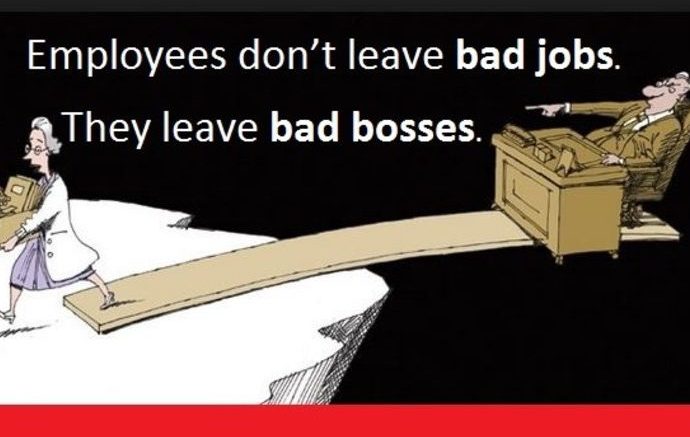When I was going through difficult, stressful times, it often turned out that lack of freedom at work, unrealistic pressure or just not being able to be myself were actually ‘bad manager’ issues. It didn’t seem fair when I heard it at first because I had technically learnt so much from the same people. Identifying this as an issue is tough when you are neck-deep trying to learn and soak in, working on interesting projects. You will not have the time to dwell or delve into manager issues. However, when you become one yourself, it starts to show. This inference came through a series of talk sessions I had with mentors and coaches over the years.
The role of a manager cannot be undermined. They are significant, not only to engage or motivate teams but how they work also shows in the overall organisational excellence as well. No wonder then, the phrase ‘people leave managers, not organisations’ keep popping up. Every manager I have worked with have left some impression on me and when I became one myself, I realised just how much. There came a time when I had to do an all important exercise of ‘reflecting’ so that I could keep some of the important learnings and ‘unlearn’ some to become a better leader.
On my worst days, I recall all the trials and tribulations I faced under bad managers. But #NotToday.
Today, I have decided that I will not let good old ‘stress learning’ go for a complete waste. That’s why I am listing down three good lessons from bad managers and what a good one could do instead:
They do not recognise the ‘small stuff’
We’ve heard this, ‘don’t sweat the small stuff’. A bad manager does not recognise the small stuff. While everything seems important, a good manager helps prioritise the topics for the team, especially when it gets overwhelming. One way to do this is a daily stand-up with the team is to talk issues, challenges and work distribution. This practice helps recognise a lop-sided work distribution that means more pressure on only a particular team member and help delegate work for better distribution and hopefully leave the team member feeling supported. It also helps with prioritising jobs and postponing some when more urgent ones have cropped up. I must admit I took sometime to learn this too. When you have a list of 10 important things, remember, you can still prioritise.
They do not fit the bits
Division of labour was a result of the industrial revolution, said to improve efficiency. For creative people like communication professionals, this sometimes lead to death of creativity. A bad manager just ‘dumps’ a job as and when it comes without so much as a brief or resource planning. While efficiency is important, a good manager shows the big picture. Where exactly does the pieces of puzzles, the teams are working on, fit in, to create that complete picture? Before you delegate the job, sit back and think about how you can communicate the big picture to the team and what could be the possible learnings and outcomes from the project. This will go a long way in keeping them motivated on the job.
They are incommunicado
Networking is not easy, especially if you are an introvert. Yes, introverted communications professionals do exist and I’m going to be writing on this in another article soon. A bad manager keeps to themselves and expects the same from the team. However, a good manager networks, especially with key stakeholders, and socialises the work the team is doing. Believe me, this helps the team get the job done more easily with stakeholders. If not for you, do it for the team. Be the team’s spokesperson, be their communications manager!
Having said this, I do want to mention that I learnt a lot from everyone I have worked with. The lessons above are not from one manager, but several. Important thing is to look at all the good things you can learn and keep a belief that no one is essentially a bad person or out there to get you! Managing while doing creative work is tough and as a disclaimer I must say I have to keep check of practicing what I preach and also keep reminding myself that I am still a ‘work in progress’.





Be the first to comment on "Learn from everyone – even from your worst managers"